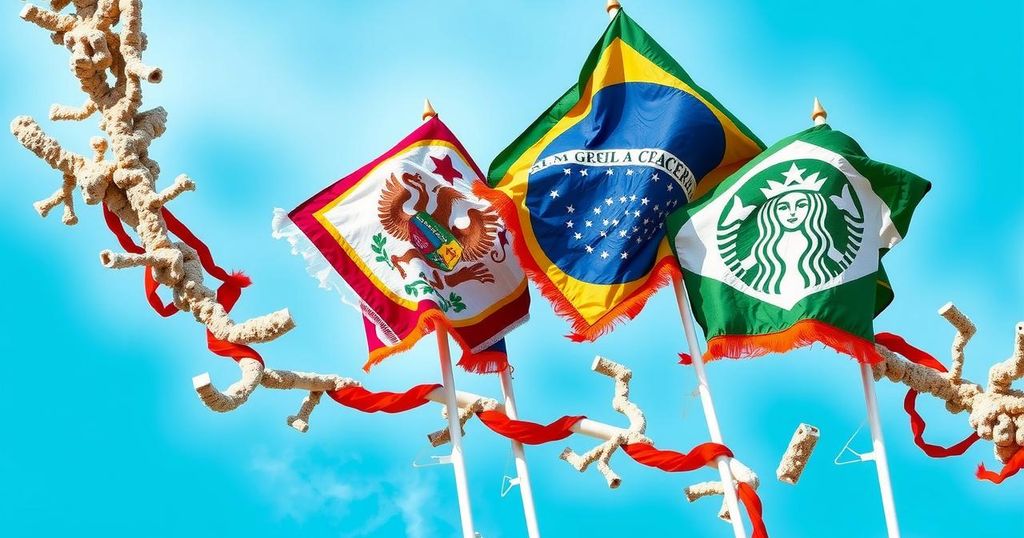Brazil Welcomes Indonesia as Newest Member of BRICS

Brazil has welcomed Indonesia into BRICS, recognizing its potential to enhance Global South cooperation. This decision aligns with Brazil’s presidency goals of reforming global governance. Indonesia expressed its intention to join after forming a new government, with its membership approved by existing BRICS nations in 2024. The BRICS group, established after key meetings in 2006 and expanded in subsequent years, now features new members including Egypt and Saudi Arabia, with continued growth in influence for emerging economies.
In a significant development for international relations, the Brazilian government has announced Indonesia’s official entry into the BRICS platform. As Southeast Asia’s largest economy and most populous nation, Indonesia is set to bolster BRICS’ commitment to reforming global governance and enhancing cooperation among Global South countries. This sentiment was echoed by the Brazilian Foreign Ministry, emphasizing that these priorities align with Brazil’s presidency theme: “Enhancing Global South Cooperation for a More Inclusive and Sustainable Governance.” Indonesia expressed its desire to join BRICS following the formation of its new government, and by 2024, its membership was unanimously approved by current BRICS nations during a consensus meeting based on pre-agreed expansion criteria established in Johannesburg.
Historically, the BRIC association originated after a meeting involving Russia, India, and China in 2006, which subsequently evolved into BRICS with South Africa’s inclusion in 2010. This expanded coalition aims to provide a stronger platform for emerging economies against the backdrop of shifting global power dynamics. In recent developments, five additional countries were integrated into BRICS in 2024—Egypt, Ethiopia, Iran, Saudi Arabia, and the United Arab Emirates—during the 16th BRICS Summit held under Russia’s chairmanship in Kazan.
The inclusion of Indonesia marks a new chapter in BRICS’ trajectory as it strives to enhance its influence on the global stage, advocating for the interests of developing nations and achieving a more equitable world order.
The BRICS group was established to promote cooperation among emerging economies, initially starting as BRIC with Brazil, Russia, India, and China. Since then, it has expanded to include South Africa and now Indonesia, among other members. The purpose of these expansions is to strengthen the agency of developing nations in global governance and economic discussions. Indonesia’s membership aligns with broader objectives to deepen collaboration among countries of the Global South, particularly following substantial shifts in global economic power dynamics.
The entry of Indonesia into BRICS symbolizes a pivotal moment for both the group and international relations. By welcoming the largest economy in Southeast Asia, BRICS enhances its collective strength and focus on reforming global institutions to better reflect the interests of developing countries. Additionally, the expansion of BRICS not only showcases the dynamic nature of international cooperation but also highlights the increasing desire for a more inclusive and sustainable global governance.
Original Source: m.economictimes.com







